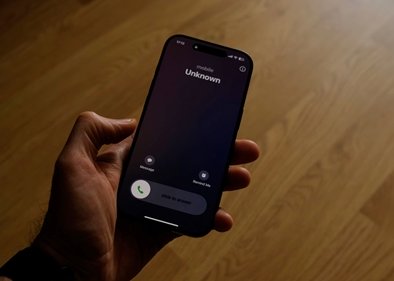Opening of world’s first NB-IoT open lab in UK
Will enable creation of devices costing just a few dollars, adding millions more connections to Internet of Things
Vodafone will launch NB-IoT in multiple markets in 2017
The opening of the world’s first open lab to develop NB-IoT (Narrowband Internet of Things) technology by Vodafone and Huawei has taken the industry closer to delivering low cost connected devices that will create new market segments where nothing is connected today because, frankly, it is too expensive.
The IoT is already growing rapidly based on existing mobile network technology.
Vodafone is using 4G to connect devices that need to transmit and receive a lot of data quickly, like cars or video cameras.
Our 2G networks are connecting devices that only require low levels of data transfer, like smart meters. Vodafone already has millions of electricity meters connected to our 2G networks, for example.
However, there is still a group of devices which require a simpler, lower cost network technology. That is where Low Power Wide Area (LPWA) networks will fit in to provide functions from sensor monitoring to asset tracking, connect millions of products. NB-IoT is expected to be the leading LPWA technology because it has strong industry support.
In future, manufacturers will be able to create connected devices that wholesale for just a few dollars by using NB-IoT. That is really significant. Smoke detectors, for example, retail for $5 today. They cannot sell for $20 just because they are connected.
NB-IoT chips will only be able to transmit limited amounts of data, but that is fine for millions of devices where manufacturers just want to add the ability to monitor simple activity remotely – if an alarm is sounding for example, or if a device is on or off.
NB-IoT operates in licensed spectrum and that is important to us at Vodafone because we need to deliver a high quality experience to our customers. The alternative, using unlicensed spectrum, risks disruption to the signal from other technologies trying to use the same frequencies.
Vodafone will roll out NB-IoT technology in multiple markets during 2017. To bring this exciting technology to market, the industry now needs to focus on rapid trials and to help customers to quickly and easily add NB-IoT to their products.
The open lab in Newbury, UK is the first of several planned across the globe. They will provide developers with software development kits, live test networks, and an end-to-end connectivity model, including service support and device management, accessible through Vodafone’s Application Programming Interfaces (APIs).
By operating in an open way we can create a community of developers who will use the facilities. Most exciting is that this may lead to new categories of connected products being developed that we haven’t even thought about yet.

Erik joined Vodafone in October 2009. As Director of Vodafone IoT, which includes Vodafone Automotive, Erik is fully responsible for driving the growth of the Group’s IoT business strategy, products and profit and loss at a global level. Vodafone is the world’s leading provider of IoT connectivity.

























